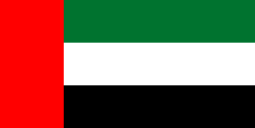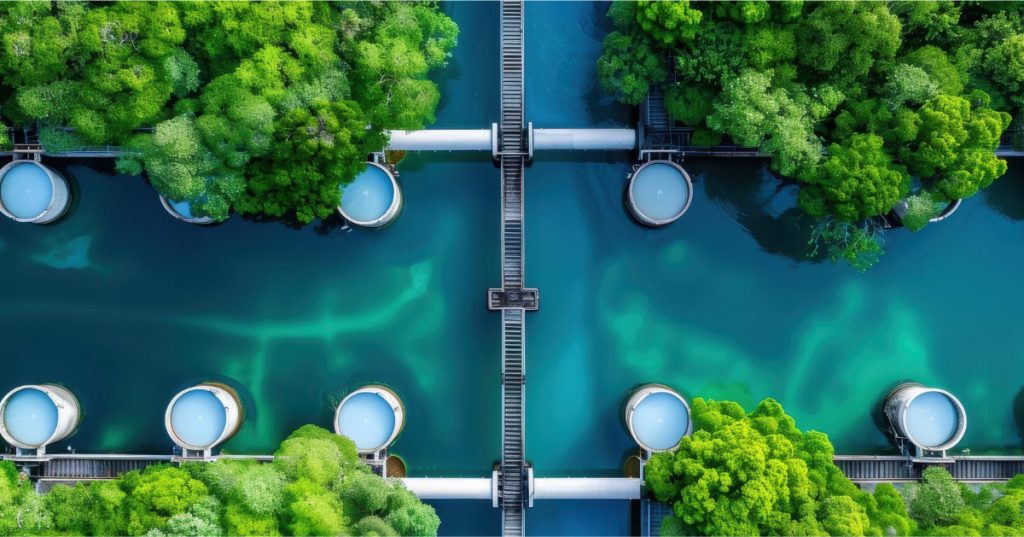In the United Arab Emirates, water and energy are inseparably linked. As one of the world’s leading oil and gas producers, the country generates vast quantities of produced water — the by-product that emerges alongside hydrocarbons during extraction. Managing this water safely and sustainably has become both an operational and environmental priority. Through advanced produced water treatment technologies, UAE operators are now turning a challenge into an opportunity — recovering usable water, reducing disposal volumes, and aligning with national sustainability goals.
Understanding Produced Water and Its Challenges
Produced water is the largest waste stream in the oil and gas industry. It typically contains hydrocarbons, suspended solids, heavy metals, and dissolved salts. Left untreated, it poses risks to the environment, equipment integrity, and regulatory compliance.
The need for effective treatment of produced water in the UAE is urgent due to:
- High Volumes – Mature oilfields generate several barrels of produced water for every barrel of oil.
- Complex Composition – Contaminants vary depending on geology and extraction methods.
- Stringent Regulations – The UAE’s environmental frameworks require efficient management and disposal practices.
- Water Scarcity – With limited freshwater resources, reusing treated produced water is vital for industrial and operational sustainability.
How Does Produced Water Treatment Work?
The produced water treatment process typically involves multiple stages of separation, filtration, and polishing to remove oil, solids, and dissolved impurities. Modern systems utilize a combination of physical, chemical, and membrane-based methods to achieve maximum efficiency.
A standard produced water treatment package may include:
- Primary Separation – Skimmers, API separators, and hydrocyclones to remove free oil.
- Secondary Treatment – Dissolved air flotation (DAF) units or induced gas flotation to capture dispersed oil droplets.
- Tertiary Polishing – Filtration systems and adsorption media for fine solids and emulsified hydrocarbons.
- Membrane or Advanced Processes – Reverse osmosis or ultrafiltration for final polishing, enabling reuse or safe discharge.
Each step is designed to meet specific discharge norms or reuse requirements for oil and gas produced water treatment.
Produced Water Treatment in the Oil and Gas Industry — The UAE Perspective
In the UAE’s arid climate, every drop of recovered water counts. Companies are increasingly viewing oil well-produced water treatment not as a cost center but as an investment in sustainability and efficiency. Treated water can be reused for:
- Enhanced Oil Recovery (EOR) – Re-injection into reservoirs to maintain pressure.
- Utility Water Supply – For cooling towers, boilers, or wash water.
- Irrigation or Landscaping – After advanced polishing, where regulations permit.
- Zero Liquid Discharge (ZLD) – Achieving complete reuse and eliminating wastewater discharge.
By implementing produced water treatment in oil and gas industry operations, companies reduce environmental footprints, improve compliance, and contribute to the UAE’s Vision 2030 sustainability targets.
Ion Exchange’s Expertise in Produced Water Treatment
Onshore Produced Water Treatment
Amal Steam, PDO Oman
The PDO-Amal steam development project in South Oman is one of the largest brownfield enhanced oil recovery development projects. Ion Exchange & Company LLC was selected as the EPC contractor against stiff 3 international competition for a 9900 m /d steam injection package that required exclusive Ion Exchange technology for treating produced water. The produced water had oil, high total dissolved solids, and hardness. The treated water after a unique oil removal system passes through two stages of specialty ion exchange resin columns, complete with an automatic skid-mounted brine dosing system to reduce hardness. This treated water is used to produce steam for reinjection into heavy oil fields to boost the extraction rate of oil without scaling oil crevices. The project was successfully commissioned and continues to be operated and maintained by us, along with several water treatment plants installed in the facility.
Cairn India Limited, Barmer
Brine Dosing Skids M/s Cairn India Ltd. awarded EPC contract to Ion Exchange (India) Ltd. for constructing a produced water treatment plant for reinjecting sulphate-free water for its large Mangala and Bhagyam wells.
Ion Exchange’s lump-sum turnkey contract includes an elaborate pre-treatment system followed by a novel dual-membrane ltration system comprising advanced nano- ltration and reverse osmosis process to 3 treat 2315 m /h of produced water. Supplied completely with CIP, the system is particularly designed for reducing sulphur concentration from 500 ppm to < 10 ppm, whilst minimizing reject in the membrane treatment process to <10%. The reject handling system consists of a high-pressure pipeline and pumps, including booster pumps for reject disposal into disposal wells, which are located at a designated reject disposal well pad. The pipeline system is complete with associated pigging facilities at both dispatch & receiving ends.
Conclusion
Sustainable produced water treatment is no longer optional — it’s the cornerstone of responsible growth in the UAE’s energy sector. By transforming waste into a valuable resource, companies can reduce environmental impact, comply with strict regulations, and contribute to a circular water economy.
With Ion Exchange’s cutting-edge oil and gas produced water treatment systems, operators gain reliable, scalable, and eco-friendly solutions that secure both operational excellence and environmental stewardship.


